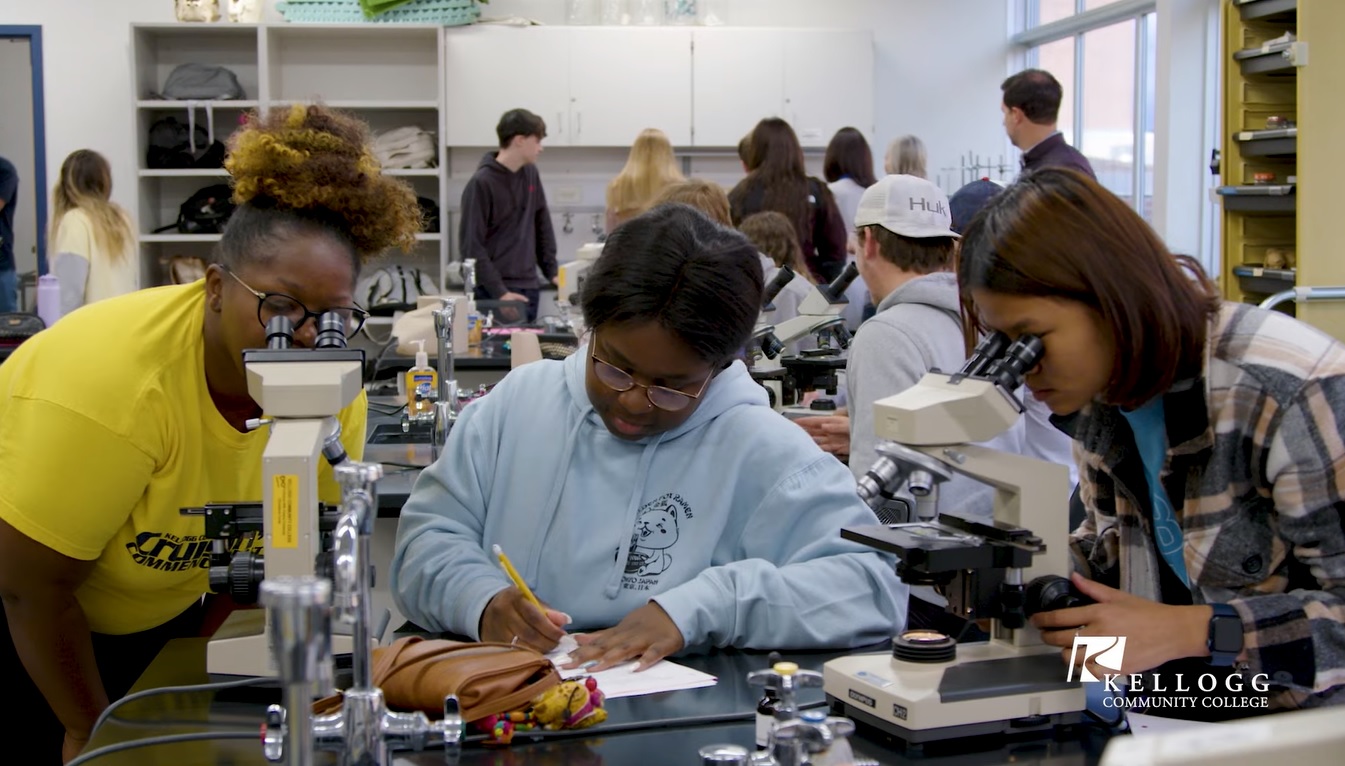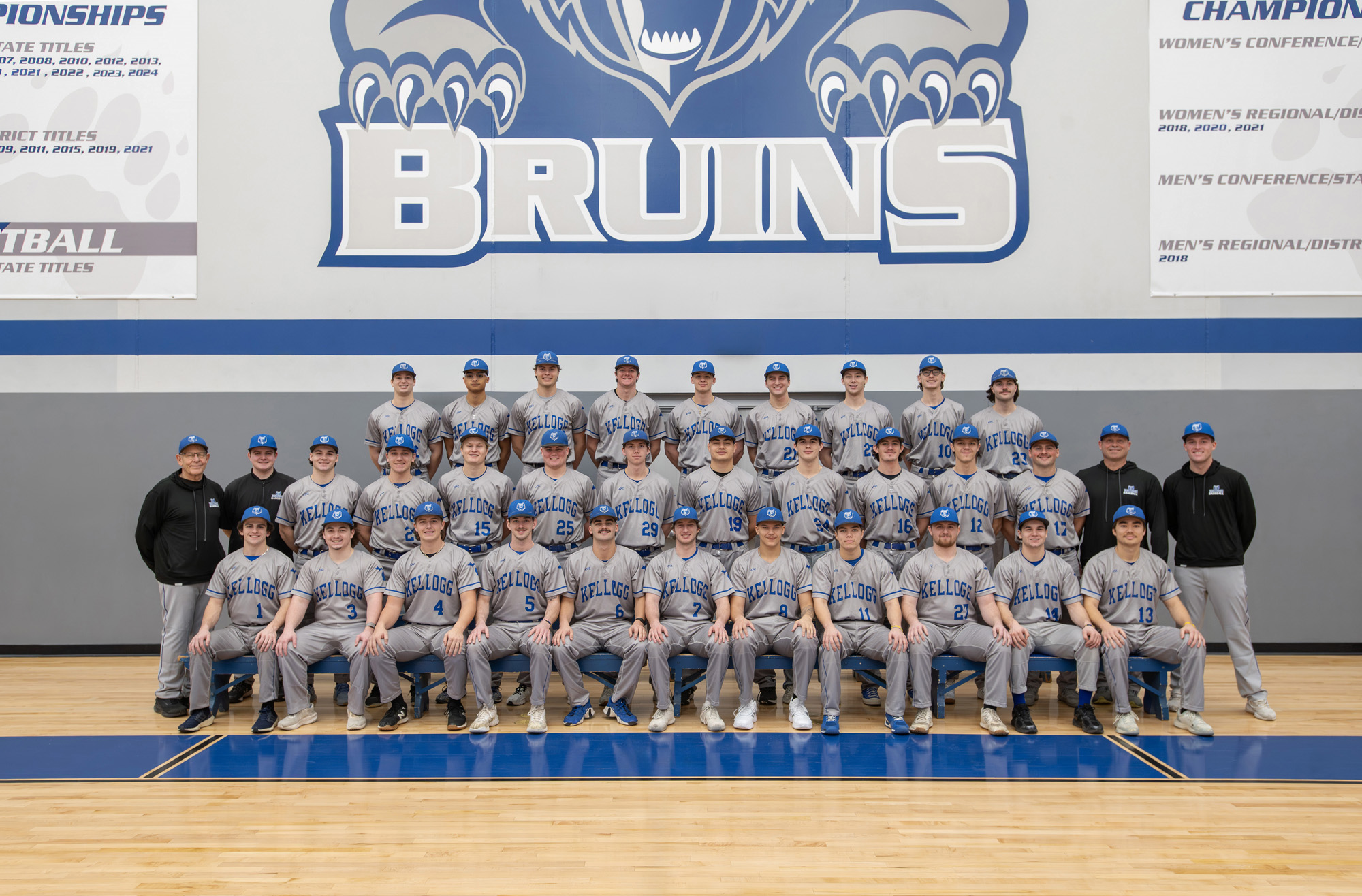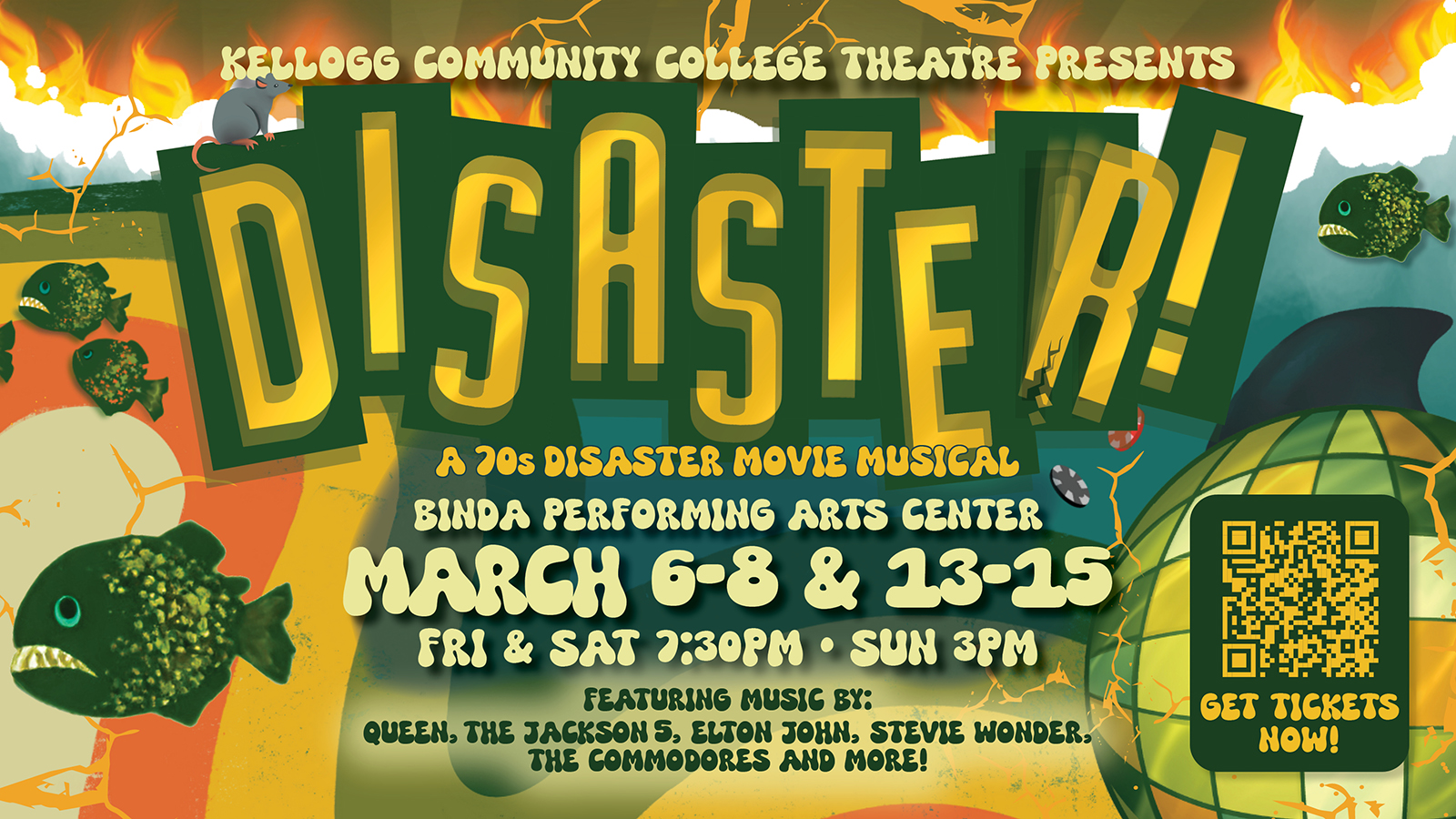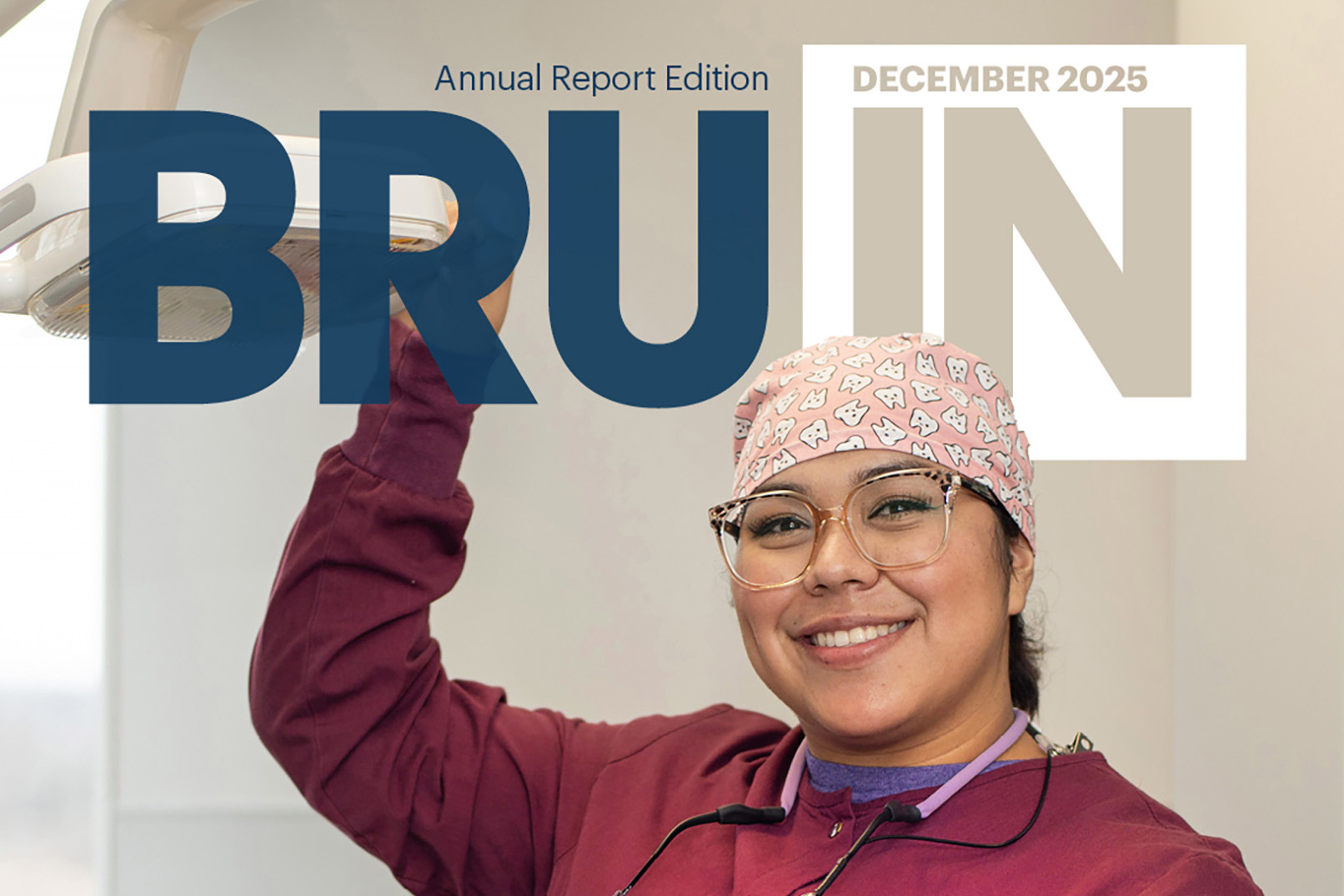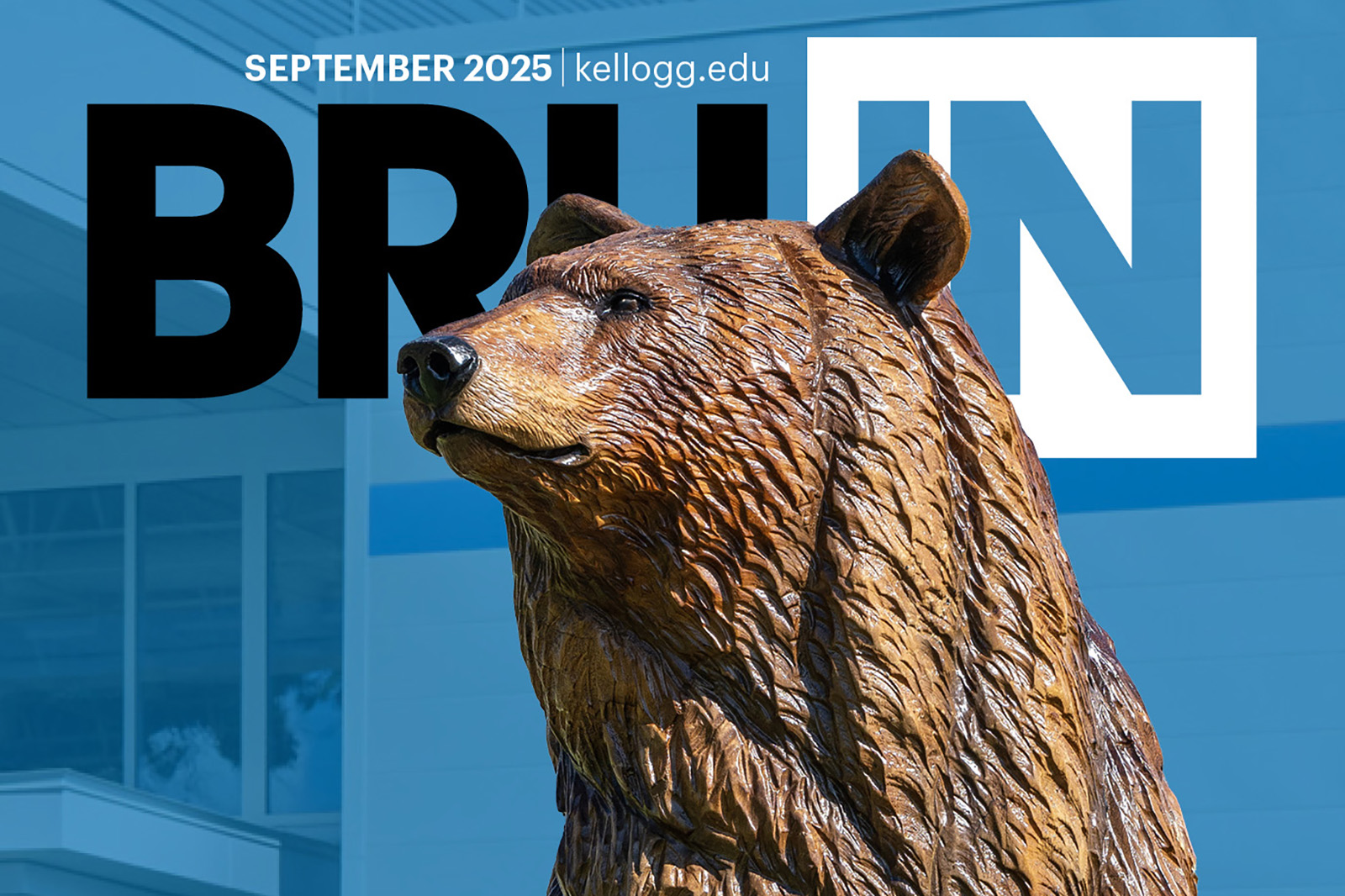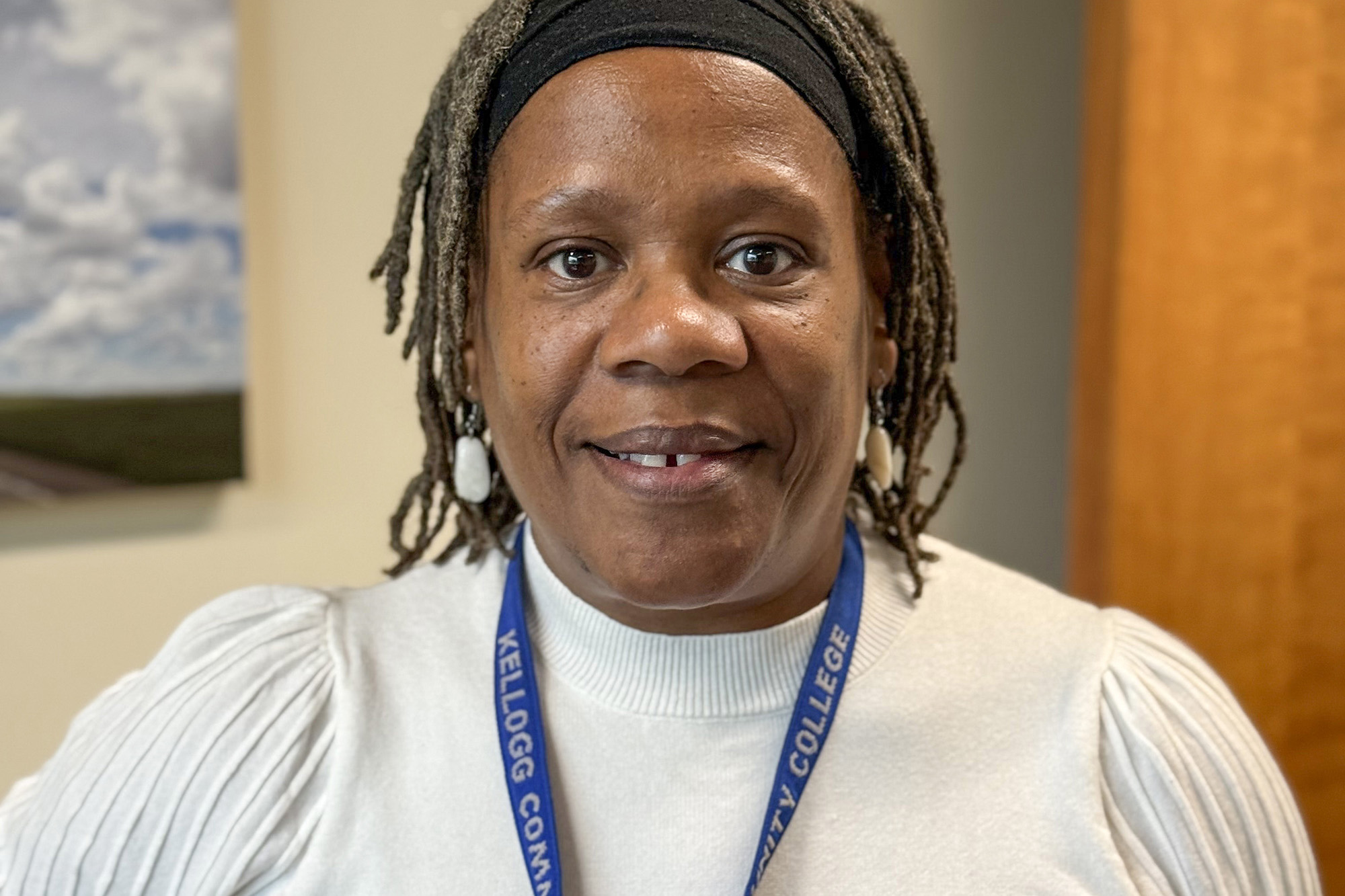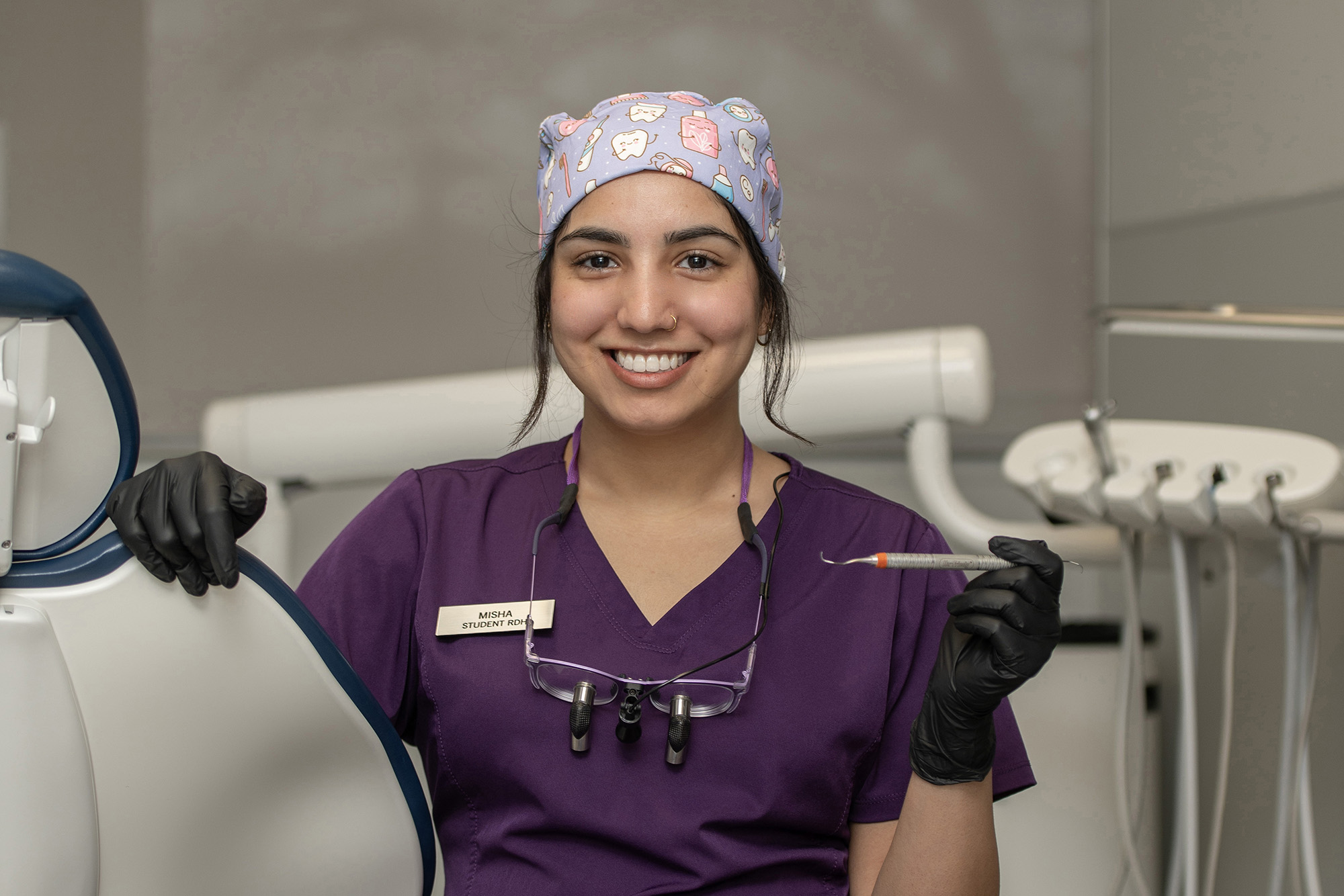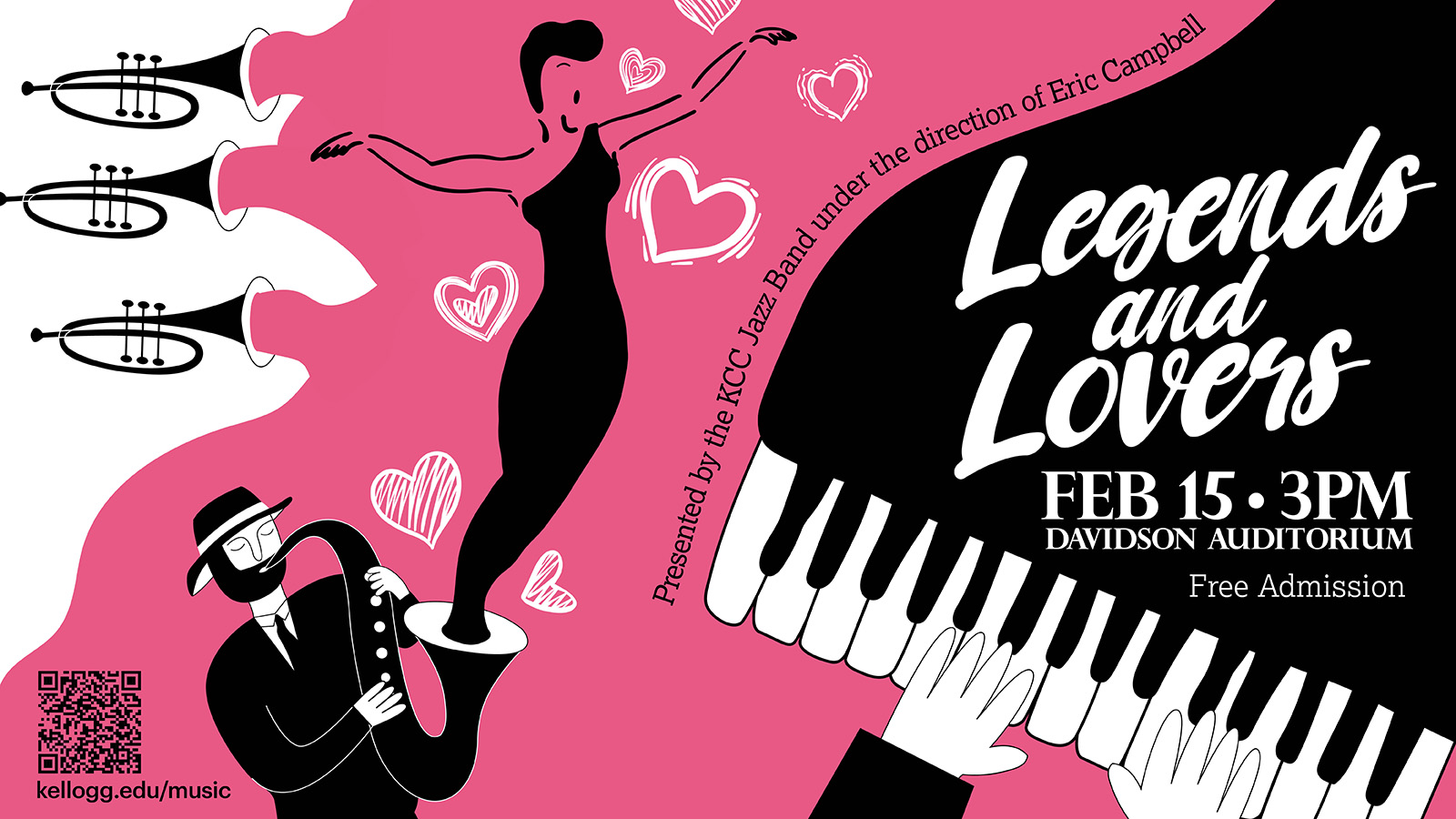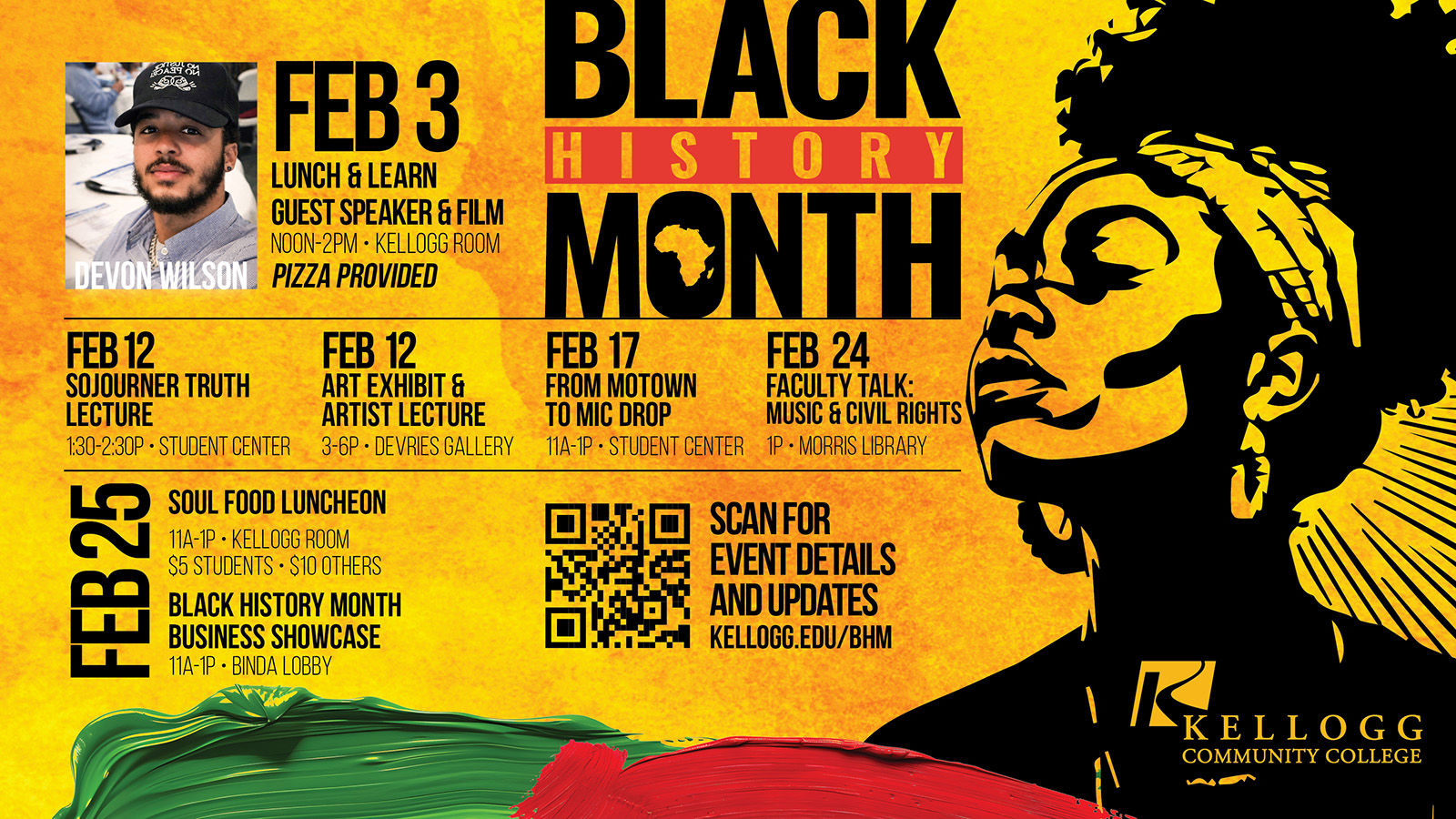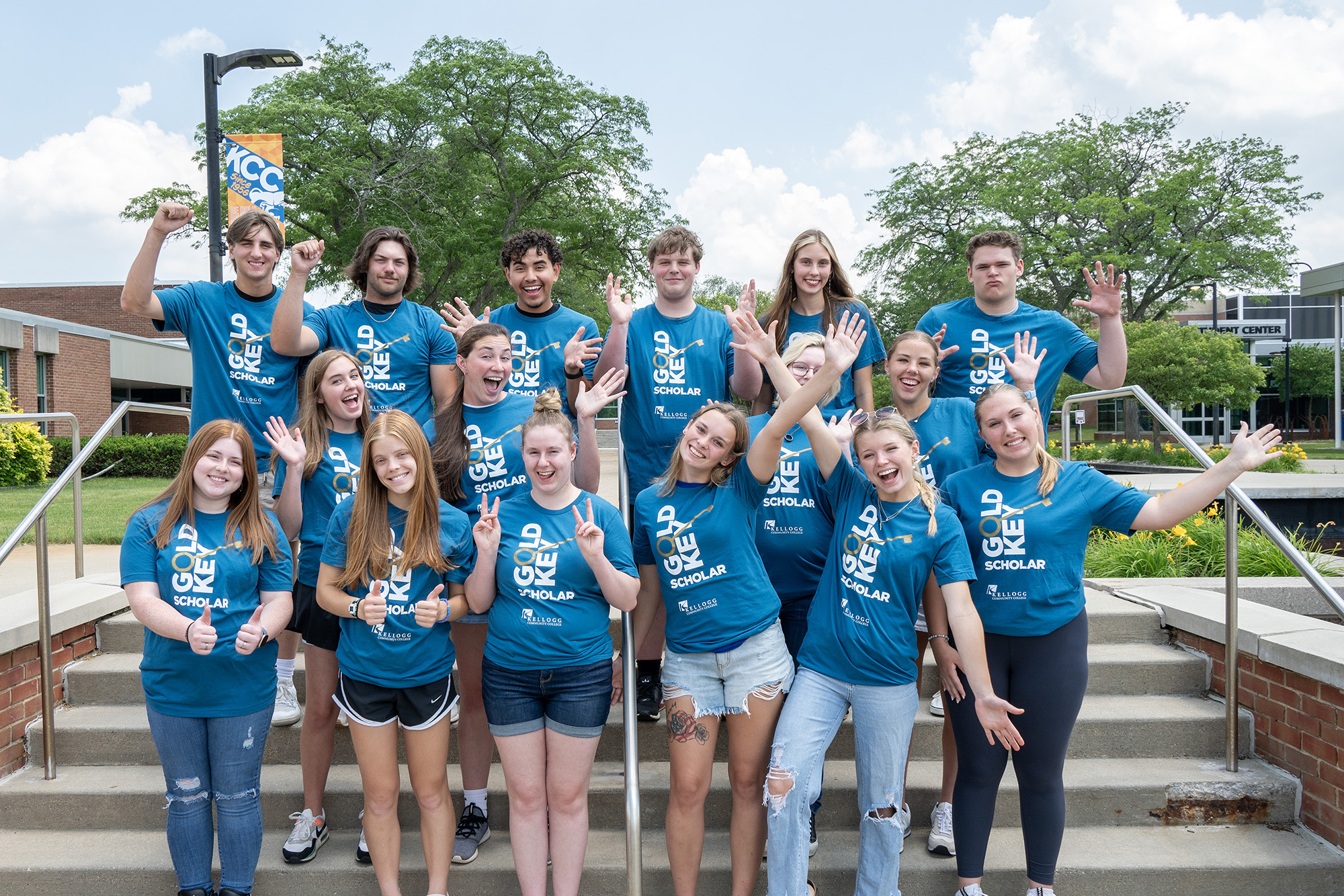Interested in taking a science class this fall but aren’t sure where to start? Below is a list of science classes offered this fall at Kellogg Community College, along with the relevant course descriptions. Subjects include agricultural science, astronomy, biology, chemistry, engineering and physics, geography and more.
KCC also offers many discipline-specific science-related courses in addition to those listed below as part of the College’s various Health Sciences programs, Business and Computer Information Technology programs and others. STEM majors might be particularly interested in KCC’s Engineering and Physics programming for transfer students.
The first Fall 2023 classes at Kellogg Community College start Aug. 28, and the semester ends Dec. 15. If you’re not a student yet but would like to sign up for fall classes, you can apply now for free online at kellogg.edu/apply. Current students can register for classes any time online via the Bruin Portal.
For help signing up, contact the KCC Admissions Office at 269-965-4153 or adm@kellogg.edu. For more details about the courses listed below, click here to view our Course Catalog, filter by “Fall Semester 2023” in the “Term” section under “Advanced Search,” then filter by subject.
AGRI 105: Agricultural Leadership (3 credits)
Students will explore different types of leadership styles, discover their own leadership style, self concepts and attitudes as they relate to a career in agriculture. They will also explore how to work with different personality types within the work world. The main focus is to provide students with the tools to be successful leaders of the agricultural industry.
ASTR 104: Introductory Astronomy (4 credits)
The course is structured to introduce the student to many of the celestial objects appearing in our night skies. Methods, equipment, observations and planetary relationships are introduced in a laboratory situation.
BIOL 101: Biological Science (4 credits)
This is a one-semester lecture and laboratory course designed for non-science majors to overview the commonalities of life on earth. This course includes a study of the cell and energy flow; maintenance, coordination and reproductive mechanisms of heredity and evolution; relationship of humans to their environment; and the impact new biological technologies may have on the future. Does NOT count toward a science or biology major.
BIOL 105: Essentials of Anatomy and Physiology (4 credits)
An introduction to anatomy and physiology covering the basic structures and functions of the human body. This course is designed for students in the KCC Emergency Medical Services Program. The course includes lecture and laboratory experiences. This course is not a substitute for BIOL 201. Other Allied Health students should take BIOL 201 and BIOL 202.
BIOL 110: Principles of Biology: Cellular (4 credits)
This is one semester of a two-semester, eight-credit lecture and laboratory sequence designed to introduce the major concepts of biology for science majors with particular emphasis on molecular biology. This course includes cellular chemistry, cell structure and function, cellular energetics, mechanisms of mitosis and meiosis, Mendelian and molecular genetics, regulatory and development processes and evidence of evolution.
BIOL 201: Human Anatomy (4 credits)
This course is a lecture and laboratory course which provides a detailed study of all human body systems. The primary emphasis is on anatomic structures with a fundamental understanding of physiology. It is strongly recommended that the student have successfully completed one year of high school chemistry or CHEM 100 prior to enrollment.
BIOL 201C: Basic Biology (1 credit)
This course must be taken concurrently with BIOL 201. It is designed as corequisite support course for the student who needs basic fundamentals of chemistry and biology to support a successful outcome in Human Anatomy. Topics include cellular structure and reproduction, selected chemical concepts, biological molecules and their structures, structure and function of biological membranes, ATP, anaerobic and aerobic metabolism and an overview of DNA replication and protein synthesis.
BIOL 202: Human Physiology (4 credits)
This course is a lecture and laboratory course which provides an introduction to the major concepts and homeostatic mechanisms necessary for a fundamental understanding of normal human physiology. General principles covered are cellular membrane function, electro-physiology, feedback mechanisms and metabolism. Also included is an analysis of the properties and interrelationships of major organ systems and a brief introduction to selected disease processes. Strongly recommended is a grade of “C” or better in BIOL 99, BIOL 110 or CHEM 100.
BIOL 205: Microbiology (4 credits)
An introductory course which includes the morphology, physiology and pathology of microscopic organisms. Laboratory exercises emphasize the culturing, identification and control of microorganisms. Successful completion of CHEM 100 or concurrent enrollment in CHEM 100 is highly recommended.
CHEM 100: Fundamentals of Chemistry (4 credits)
This is an introductory course in basic chemistry covering chemical concepts and principles of inorganic chemistry. This course includes lecture and laboratory experiences. This course should not be taken by students in curricula requiring a chemistry major or minor.
CHEM 110: General Chemistry (4 credits)
This course includes the following topics: atomic and molecular structure, chemical bonding concepts, stoichiometric relationships, gas laws, periodic properties, acid-base relationships, some descriptive chemistry, oxidation-reduction and an introduction to chemical equilibrium. This course includes lecture and laboratory experiences.
CHEM 201: Organic Chemistry 1 (4 credits)
This course provides a comprehensive study of the physical and chemical properties of aliphatic, aromatic and cyclic compounds, including functional groups. Emphasis is placed upon mechanisms and theory of reactions of the basic classes of organic compounds. The course includes lecture and laboratory experiences.
ENTE 215: Material Science (3 credits)
This course is intended to introduce the student to the materials used in engineering/industry and their properties. The types of material studied will include ferrous and nonferrous metals, plastics, rubber, ceramics, glass and cement. In addition, material inspection, testing and the effects of heat treatment and corrosion will be studied. Laboratory experiences will include the testing and inspection of materials.
GEOG 100: Physical Geography (4 credits)
A one-semester lecture and hands-on laboratory course devoted to the origin and continuous evolution of the planet earth. Areas of consideration include spatial distribution, location and time, the structure of the Earth, the Earth-sun relationship, plate tectonics, soils, gradational processes, elements of weather and climate and the distribution of vegetation and water resources. The influence of living organisms on all of these processes will be considered as part of the Earth’s dynamic state of change.
PHYS 111: College Physics 1 (4 credits)
This is a non-calculus-based lecture and laboratory course dealing with the major areas of physics including measurement, mechanics, heat and waves. The basic principles of these topics are studied in terms of their applications. Experience in trigonometry is recommended but not required.
PHYS 221: Physics for Scientists and Engineers 1 (5 credits)
This calculus-based, lecture-laboratory course deals with mechanics, heat, waves and their applications.
SCIE 100: Environmental Science (4 credits)
An interdisciplinary approach analyzing our earthly environment from the vantage point of the biological and physical sciences. The course will focus on such topics as life cycles, energy, pollution, governmental policy, population and resource depletion and deterioration. Additionally, philosophic and ethical attitudes of our relationship to cultural and natural environments will be examined. Within this framework, humans will be studied as “citizens of Earth.”
SCIE 102: Physical Science (4 credits)
A lecture and laboratory course that integrates the sciences of astronomy, physics, chemistry and modern contemporary science. Emphasis is placed on applications and principles contributed by all the physical sciences.
Science instruction is an integral part of KCC’s Associate in Science transfer degree for STEM majors. For more information, visit kellogg.edu/experience. For more details about signing up for classes at KCC, visit kellogg.edu/registration.


